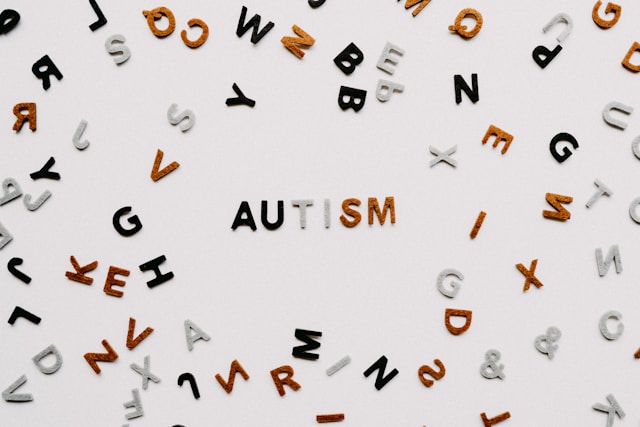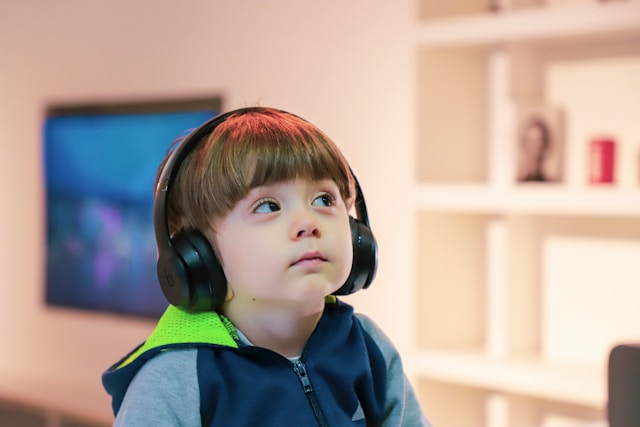Autism is a developmental illness marked by difficulties with behavior, socialization, and communication. It is sometimes referred to as autism spectrum disorder. The illness is chronic, and each individual may experience quite different symptoms.

The symptoms include difficulties with or variations in motor skills, as well as cognitive and social abilities. Individuals who do not have autism spectrum condition may not learn, behave, think, communicate, or interact in the same ways as those who do.
Because there is so wide range in the kinds and intensities of symptoms that people with autism experience, the condition is known as a spectrum disease.
Signs and symptoms
Even while symptoms might vary greatly, they typically start to show up before the age of three. Parents may observe signs related to their children’s communication skills, social interaction skills, and responsiveness to stimulus.
Autism is characterized by repetitive habits, narrow interests, and difficulty interacting with others.
Individuals diagnosed with autism spectrum disorder typically exhibit many symptoms, albeit not all of them may be present at the same time.
difficulty maintaining eye contact
inability to follow and participate in talks
severe anxiety when even little deviations from routines occur
Unmatching facial emotions to spoken communication
intense passion for a certain topic
Dissatisfaction with activities
difficulties verbally expressing wants or sentiments
Not playing “pretend” games
When someone tries to get their attention, they react slowly or not at all.
sensitivity to several sensory cues, such as smell, taste, and light
Stimulating behaviors include repeated, self-stimulating acts like flapping hands, stepping on tiptoes, and rocking.
Having trouble understanding other people’s perspectives
It’s crucial to keep in mind that, as autism is a spectrum disorder, individuals with the disorder might have mild, moderate, or severe symptoms. Some people may exhibit several symptoms, however they may only be mildly felt.
In some situations, a person may only have a few symptoms in important areas, yet those symptoms cause serious impairments.
Even though people with milder forms of autism are frequently able to go about their everyday lives normally, they may also be more susceptible to other mental health problems such as anxiety, depression, compulsive behaviors, excessive stress, and sensory problems.
Autism is often identified in childhood and affects individuals of all racial, ethnic, and socioeconomic origins.

Identification
Parents are usually the first to discover signs of autism, but other caregivers, teachers, and physicians may also notice them.
Early assessment and screening are crucial. It’s crucial to discuss your concerns with your child’s physician if you are worried about their conduct. Interventions can start as soon as a diagnosis is obtained.
Assessments
Doctors monitor several developmental milestones and assess for various developmental deficits during routine pediatric developmental examinations. Children may undergo further testing if they don’t reach specific developmental milestones.
A team of experts, which can include a developmental pediatrician, a child psychiatrist, and a speech-language pathologist, would evaluate a variety of factors during an extra assessment, such as language skills, age-appropriate behaviors, and cognitive capacities.
The following are a few test kinds that might be utilized to diagnose autism:
questionnaires for autism symptoms
monitoring for development
assessments of hearing
IQ evaluations
Identification as an Adult
Although early childhood is the most common time for an autism diagnosis, it can also be made in adolescence or maturity. Later in life, diagnosis can occasionally be more challenging since some symptoms of autism might be mistaken for other mental health issues, including ADHD, OCD, and anxiety.
Getting a diagnosis can be useful for understanding both present and historical issues, even if experts are still investigating what kinds of therapies are most effective for individuals with autism. It may also teach you how to play to your strengths and seek support when needed in areas where you might be weak.
It is normally best to detect autism early, although it is never too late to have an assessment, a diagnosis, and treatment. See your doctor to find out more if you’re having symptoms that you think might be associated with autism.

Causes
Research indicates that the illness most certainly has a hereditary component, even though the precise reasons are unknown.
Studies demonstrating that children who have an autistic sibling are more likely to experience autism themselves are among the data that suggest a hereditary component.
But studies have also shown that only around 20% of the reasons are directly related to genetics. To fully comprehend how certain genetic mutations or variants may contribute to the development of autism spectrum disease, more study is required.
Studies have indicated that preterm birth and advanced paternal age are also associated with the start of autism, even though genes are considered to be a major factor.
Pregnancy and certain medications have been related to an increased risk of autistic spectrum condition.
Categories
A person’s functional level is also determined when they receive an autism diagnosis. Three distinct stages of autism spectrum disorder exist:
Level 1: Highly efficient
Level 2: Mildly intense
Level 3: Extreme
The degree to which behavioral and social skills are impacted is indicated by these degrees.
First Stage
Autism at Level 1 is regarded as a moderate variant. Individuals of this kind may exhibit restricted habits and struggle in social situations. For them to carry out their regular daily activities, they often require very little assistance.
Stage Two
More assistance is required for those with Level 2 autism spectrum condition. Their communication issues and evident social challenges may necessitate support in order to help them control their harmful actions.
Stage Three
The symptoms of Level 3 autism make it difficult for affected individuals to live and work on their own. Individuals with this degree of autism frequently exhibit nonverbal communication, struggle with change, engage in repetitive or restricting activities, and may be very perceptive to their environment.
Treatment
Although autism is a lifelong disorder, there are therapies that can help with a variety of symptoms and enhance a person’s capacity to function in various spheres of life.
As soon as a diagnosis is made, therapy should start, according to the National Institute of Mental Health.
The ideal course of treatment is not a single one. Given the vast spectrum of symptoms associated with autism, no two people’s requirements are the same. Treatment approaches that may be employed include therapy and medication.
Drugs
Although there isn’t a drug that is licensed to treat autism, a doctor may prescribe one to address a specific symptom.
The following symptoms may be relieved by drugs such as selective serotonin reuptake inhibitors (SSRIs), anti-psychotics, stimulants, anti-anxiety drugs, and anticonvulsants:
Uncertainty
issues with focus
Depression
agitation
Unsuitable words spoken
Intolerance
Social disengagement
Developmental and Behavioral Therapy
Interventions in behavior, psychology, or skills training are frequently used in the treatment of autism.
Applied behavior analysis (ABA), a type of treatment that uses reinforcements to teach and reinforce desired behaviors and abilities, is one often employed strategy.
Additional prevalent treatments employed in the management of autism comprise:
The treatment of cognitive behavior (CBT)
Individual variations and developmental stages “Floortime” treatment (sometimes called relationship therapy)
Early and powerful behavioral intervention
pivotal treatment for responses
Intervention for relationship development
Behavior treatment with words
These therapies aim to support individuals with autism spectrum disorder in:
Encourage mental faculties
Boost current advantages
Boost speech and language abilities; strengthen social skills
Acquire adaptable abilities that enable independent existence
Additional therapies that might be employed are speech therapy, occupational therapy, assistive technology, and social skills training. Aspects of caregiver training, in which parents and other caregivers acquire abilities to support the therapy’s objectives, are frequently incorporated into treatment plans.
You may also like:
The Best Ways To Boost Your Mental Health in 2024
PTSD: Everything You Need To Know


Pingback: How to Help Your Child When They Have Anxiety Disorders | FactsAll